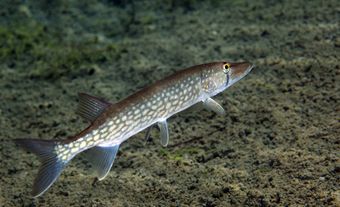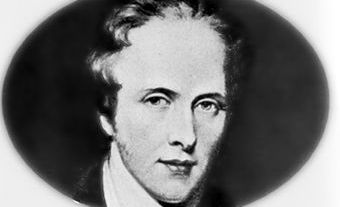Newfoundland Symphony Orchestra
Newfoundland Symphony Orchestra. The ensemble now known as the Newfoundland Symphony Orchestra (NSO) originated in St John's, Nfld, in 1962 with the birth of the St John's Orchestra. This community orchestra, the brainchild of Newfoundland organist, conductor, and music educator Ignatius Rumboldt, was established under the auspices of the Extension Service of Memorial University of Newfoundland. Initially a 20-piece string orchestra, the ensemble's first conductor was Nigel Wilkins, followed in 1964 by the German-born pianist and pedagogue Andreas Barban. Under Barban's leadership, the orchestra was expanded to include woodwinds, brass and percussion. Newfoundland composer Frederick Emerson composed his Newfoundland Rhapsody for the ensemble during Barban's tenure as conductor. Other early conductors included Stan Navratil (1968) and Ian Mennie (1969-74). The latter directed the orchestra in his own arrangements of Newfoundland folksongs.
In 1969, the St John's Symphony Orchestra became an autonomous organization with its own board of directors and moved into a new home in the St John's Arts and Culture Centre. In 1971, the orchestra performed in Grand Falls, Nfld, the first of many concerts outside St John's, and an event that marked the beginning of an evolution from civic to provincial orchestra. Violinist Peter Gardner was appointed the orchestra's first full-time resident musician in 1972 and, in the varied roles of concertmaster, conductor, and general and artistic director, has been largely responsible for the direction the ensemble has charted to the present day.
Growth and Change
David Gray was appointed the orchestra's first full-time conductor in 1977, and the following year, the ensemble officially changed its name to the Newfoundland Symphony Orchestra (reflecting a growing provincial mandate). The 1970s also saw the appointment of resident musicians Beverley Lane (flute), Carol MacDonald (bass), Anne Rubner and later Valerie Holden (oboe), and Don Wherry (percussion). (Wherry later founded the multi-disciplinary new music festival, Sound Symposium, in St John's.)
Subsequent conductors have included Charles Bornstein (1982-4), Mario Duschenes (1985-92), and Marc David, whose record tenure with the orchestra began in 1992. In 1987, the orchestra established the Atlantic String Quartet as professional quartet-in-residence. Original members included Sharon Gewirtz and Mark Latham (violins), Laura Wilcox-Root (viola), and Dale Root (cello). In 1988, Gardner founded the 20-member chamber orchestra Sinfonia under the auspices of the NSO, while the Philharmonic Choir was founded that year under the direction of Douglas Dunsmore. A 1989 performance of Handel's Messiah by the NSO and NSO Philharmonic Choir was broadcast nationally on CBC television. The NSO has continued to benefit from close ties with the School of Music at Memorial University of Newfoundland. Since the 1970s, a number of professional musicians on the faculty of that institution have been members of the orchestra.
Canadian Compositions and Guests
The NSO has taken an active role in performing music by Canadian composers, giving world premiere performances of music by Patrick Cardy, Jim Duff, Peter Gardner, Stewart Grant, Kelly-Marie Murphy, Jennifer O'Neill, Michael Parker, Clark Winslow Ross, Brian Sexton, and Don Wherry, among others. The 1981-2 concert season featured a musical evening with R. Murray Schafer, while Harry Freedman served as the NSO's composer-in-residence in 1988. Among the many featured guests to have appeared in concert with the NSO are the Elmer Iseler Singers, the Canadian Brass, and the Kitchener-Waterloo Symphony, as well as numerous solo artists from Canada and abroad.
Newfoundland Symphony Youth Orchestra
The orchestra has been firmly dedicated to the training of student musicians and, to that end, educational concerts and workshops have been given to thousands of students throughout Newfoundland and Labrador since the early 1970s. Gardner founded the Newfoundland Symphony Youth Orchestra (NSYO) in 1981 and, a decade later, the NSO inaugurated a Young Artists Concerto Competition (won that year by the violinist Krista Buckland). A number of NSYO players have gained positions in the National Youth Orchestra of Canada, and many alumni have established careers as professional musicians. The orchestra has toured internationally and participated in numerous youth orchestra festivals, collaborative ventures and exchanges. In 2005, the NSYO toured Japan with Schafer, the Mount Pearl Show Choir of Mount Pearl, Nfld, and the Set'A'newey Mi'kmaq Youth Choir as part of the Threnody Peace Education Project.
Newfoundland Symphony Youth Choir (Shallaway)
The Newfoundland Symphony Youth Choir (NSYC), an independent group founded in 1992 by Newfoundland choral director Susan Knight, has likewise enjoyed a long-standing affiliation with the NSO and has performed with the orchestra on many occasions. (Knight also inspired the creation of the international choral festival, Festival 500, in Newfoundland in 1997.) Among the accolades accorded NSYC in recent years are the Healey Willan Grand Prize in the 2002 CBC National Competition for Amateur Choirs, and Chorus America's 2004 award for choral excellence. In October 2002, the choir gave a nationally televised command performance for Queen Elizabeth II at Roy Thomson Hall in Toronto. The choir changed its name to Shallaway in 2005.

 Share on Facebook
Share on Facebook Share on X
Share on X Share by Email
Share by Email Share on Google Classroom
Share on Google Classroom


